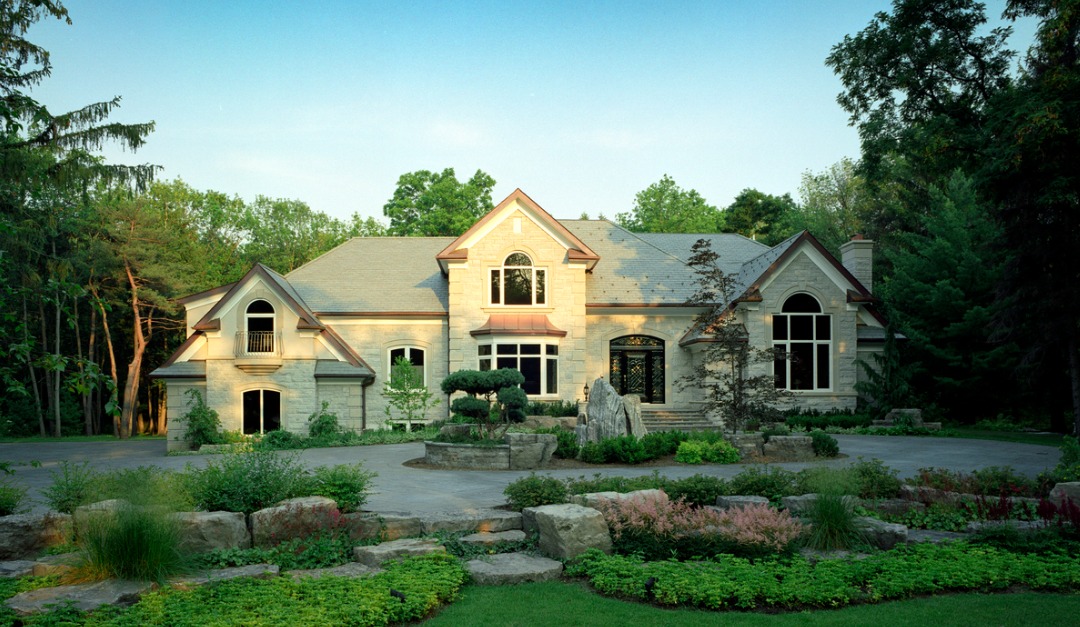When consumers think of luxury, they tend to picture a move-in ready home with high-class amenities already built in. But is that always the case?
Because of new-build luxury homes that check off most must-haves for today’s buyers, residential resales, even those within the high-priced market, can often seem underwhelming in comparison. That’s why luxury real estate experts suggest that today’s home sellers renovate before listing their home.
Which projects carry the most reward? Agents today should guide their sellers toward upgrades that elevate the home on a cosmetic level, as well as in functionality. According to Diane Hartley, president of the Institute for Luxury Home Marketing (ILHM), renovating before putting a home up for sale is “critical” especially for resale homes—and selling it faster and at a higher price are two of the biggest benefits, she says. The biggest competition for resale luxury homes is the new-construction market, which are typically valued higher than their resale counterparts, even if the resale properties feature similar square footage and footprints.
“The competition with new construction is steep, so it’s easy to feel old and dated to today’s buyer versus new builds,” says Hartley. “According to the Institute’s data, the average age of the person buying million-dollar-plus homes nationally is going down, so it’s important to appeal to that buyer.”
What is that buyer looking for? There are renovations that can boost sales price, but others are costlier, lacking in significant returns. Industry experts and the 2019 Cost vs. Value Report by Remodeling Magazine provide some guidance. The Cost vs. Value Report notes that major kitchen remodels within the luxury space cost, on average, $131,510, with the resale value relatively low at $78,524. In essence, these sellers would only recoup about 59.7 percent of these renovation costs upon selling, but that largely depends on the type of kitchen renovation.
Hartley actually puts the kitchen at the top of the renovation list, telling agents their clients should focus specifically on cabinets: “…lightening up and getting rid of old dated wood and hardware is a must,” she says.
For bathrooms, Remodeling Magazine reports that upscale renovations cost $64,743, on average. The resale value is a little higher here than kitchen remodels at $38,952—sellers would recoup about 60.2 percent of their costs.
“Bathrooms are also a great upgrade,” says Hartley, “but remember not to go too ‘trendy.'” She instead recommends that sellers choose more neutral and contemporary options when renovating their bathrooms in order to appeal to a wider range of buyers, instead of limiting the buyer pool by being “too unique.”
While painting-related renovation statistics are not currently available, Hartley says a fresh paint job, both on the interior and exterior of the home, can have the most potential to increase the sales price of the property.
Additionally, the Cost vs. Value Report found return-on-investment statistics for the following upscale renovations:
Garage Door Replacement
Cost: $3,611
Resale Value: $3,520
Cost Recouped: 97.5%
Fiberglass Grand Entrance
Cost: $8,994
Resale Value: $6,469
Cost Recouped: 71.9%
Master Suite Addition
Cost: $271,470
Resale Value: $136,820
Cost Recouped: 50.4%
Window Replacement (Vinyl)
Cost: $16,802
Resale Value: $12,223
Cost Recouped: 73.4%
Window Replacement (Wood)
Cost: $20,526
Resale Value: $14,530
Cost Recouped: 70.8%
What type of styles should today’s luxury homeowners be embracing? Agents can research new-construction amenities within their local markets to assess the competition and guide their clients appropriately. In Los Angeles, for example, Mansion Global reports that new developments are including upscale features such as drought-tolerant landscaping, multiple garage spaces, private rooftop decks, elevators, wellness gardens, resort-style pools and state-of-the-art cabanas with home spas, fitness centers and yoga studios.
Additionally, new construction typically has the added benefit of being energy-efficient, with the potential for saving homeowners in utility costs. Technology is often a focus as well, with systems such as alarms, speakers and internet connectivity built right into the home.
While big changes may be necessary in order to compete with new construction, Tami Simms from Coastal Properties Group/Christie’s International in St. Petersburg, Fla., and an ILHM instructor, suggests there are some simple updates that can pack a big punch when it comes to selling.
“Light fixtures are an easy way to incorporate an updated feel to the home. The impact is significant compared to the cost,” says Simms. “I’m listing a 1925 home in a great neighborhood that is now competing with new construction, so I scoured the sold properties, particularly those under contract, to see what kind of fixtures are appealing to buyers in the market right now and am having them installed.”
The Wall Street Journal reports that today’s homeowners are largely embracing old wood within a modern landscape. This includes taking wood from old structures (typically those built in the 1800s), such as log cabins, barns and factories, and implementing the materials into their renovations. Usage ranges from small pops or accents throughout the home, antique flooring or making a room more dramatic with barn-like beams.
However, Simms says that styles vary depending on location and it’s important “to not follow the current trends” or risk becoming outdated. Therefore, agents should tell their luxury clients to keep a larger audience in mind when renovating, staying away from anything that’s “too bold, too personalized and too much pattern.”
Renovating before listing can help a home sell quickly, even if it is being sold among new-construction homes that claim to have it all.
“There was a Mediterranean-themed home in my market recently from the early 2000s in the $3 million range that went through two listing agents, and, finally, the third agent convinced the sellers to spend $250,000 on updates like fresh paint, a new kitchen and flooring throughout (no more carpet), and the home sold quickly and over the previous listing price,” says Simms. “The moral of the story is to do the upgrades prior to listing. Buyers are no longer interested in getting a credit to do things their way. They want it ‘done.'”
Liz Dominguez is RISMedia’s associate content editor. Email her your real estate news ideas at ldominguez@rismedia.com.











